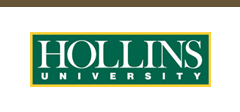Document Type
Article
Publication Date
2018
Abstract
Of all the tools the film industry has used in the past and present to contribute to American myth-making, the Western is the most iconic. If, as critic J. Hoberman argues in a Village Voice article, “the Western has always been the most idyllically homosocial of modes,” and, as film scholar Erika Spohrer writes in her article about genre and Brokeback Mountain (2005, dir. Ang Lee), “by inserting Brokeback Mountain into the Western canon, critics force a re-vision, a re-seeing of all Westerns that have preceded it,” then I argue for the necessity of pursuing that critical work and analyzing gay- or lesbian-coding in Westerns, traditional and revised (Spohrer 5). Like Alexander Doty, I don’t present my comments as “alternative” readings, “against the grain” of the film’s true, heterosexual mission; instead, I agree with Doty’s suggestion that “within cultural production and reception, queer erotics are already part of culture’s erotic center” (3). My mission isn’t to apply “queer theory” to a text as if gayness were something foreign to that text that needed to be introduced—but rather to elucidate the gayness already within the text at every level.
Recommended Citation
Symmonds, Dean, "The Western, Violence, and Queer Expression in Red River, Brokeback Mountain, and Thelma & Louise" (2018). Undergraduate Research Awards, Hollins University. 45.
https://digitalcommons.hollins.edu/researchawards/45

Comments
Undergraduate Research Awards - 2018 Finalist, Junior-Senior category.